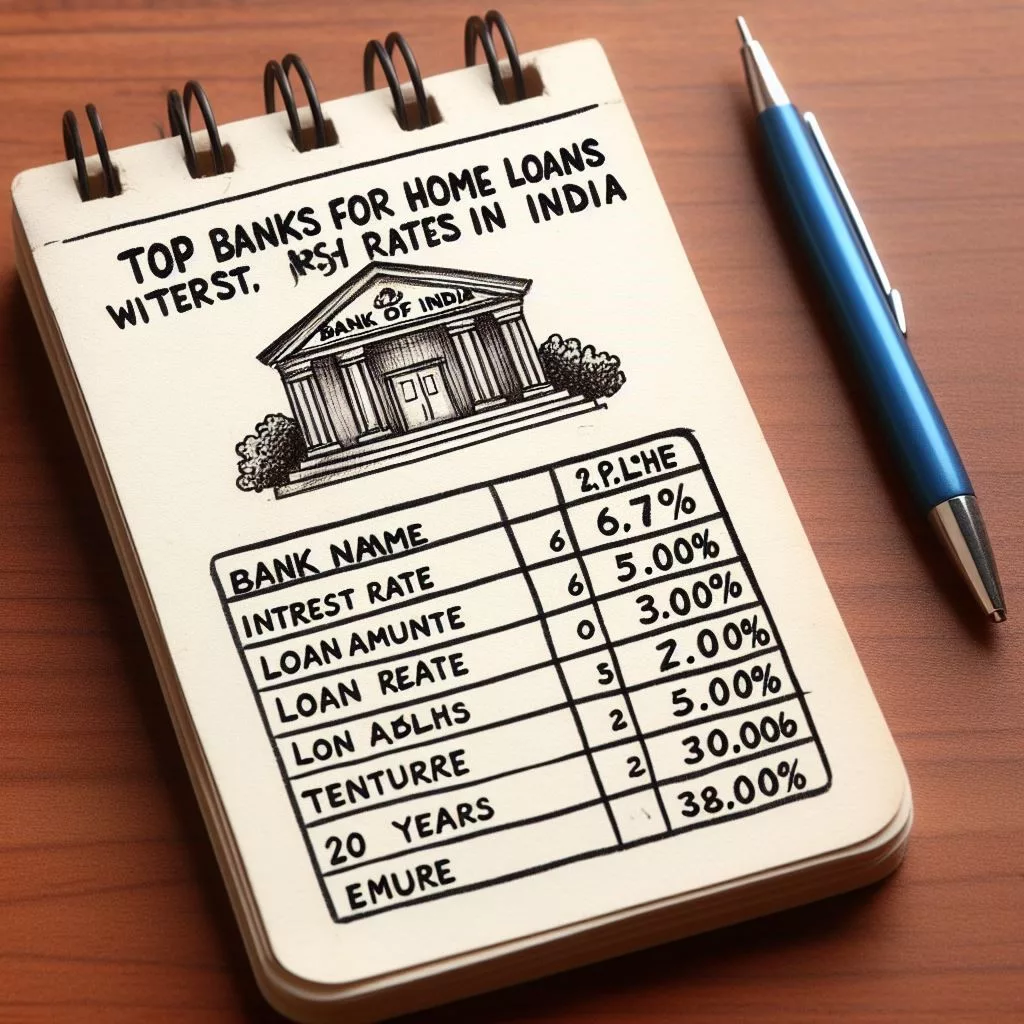Top Banks for Home Loans with Interest Rates in India 2022

The most crucial aspect that might influence the total cost of your home is the interest rate on your home loan. Due to the higher value and longer-term of home loans, even a slight change in the interest rate can have significant financial consequences, especially over time. Obtaining a lower home loan rate would cut not just your monthly EMIs, but also the total amount of interest paid on the loan. As a result, if you’re looking for a house loan, you must compare all of your options and choose the one with the best home loan with a low-interest rate.
How do you acquire a low-interest house loan?
Because home loans are typically large loans, banks and HFCs conduct a thorough examination of the borrower’s credit history, repayment capacity, and income, as well as thorough inspections of the property to be purchased. Borrowers seeking a home loan should be aware of the criteria lenders consider when processing an application and have a thorough understanding of their eligibility. Low-interest rates are typically paired by severe qualifying conditions. Lenders examine the following factors when establishing your eligibility for a home loan and the rate of interest you’ll be decided to offer:
Credit rating:
Your credit score is a tally of your credit history. A good credit score is earned by those who have paid their EMIs and credit card payments in full and on time, and who have not been overly reliant on credit in the past. Lenders will look at you favorably for a house loan if your credit score from CIBIL and other bureaus is 750 or above. Furthermore, banks and HFCs are increasingly considering house loan applicants’ credit scores to determine home loan interest rates. Because a good credit score demonstrates responsible credit behavior and financial discipline, many banks and HFCs provide home loans with reduced interest rates to candidates with higher credit scores.
Employability and earnings:
Your salary, type of employment, and employer profile are all important factors that lenders consider. Lenders prefer candidates who work for the government or PSUs, as well as those who work for large and/or reputable private sector businesses because they have more job/income security. As a result, lenders offer these borrowers home loans with the lowest interest rates. On the other hand, acquiring a Home Loan with a lower interest rate may be difficult if you are self-employed with variable income, have an insecure job profile, or have just begun your professional career.
Amount of the loan:
The amount of money you want to borrow might also affect the interest rate you get on a home loan. Home loan Interest rates of up to ones of up to Rs. 30 lakh are frequently less expensive than additional loans. You should try to put down as much money as possible on your property loan to receive a good interest rate. This will not only assist them in paying off their debt more quickly, but it may also assist them in obtaining a lower interest rate.
Type of mortgage:
The interest rate on a house loan varies depending on the type of loan. Regular home loans have regular home loan interest rates, whereas plot loans and NRI home loans typically have higher interest rates.
External rate of comparison:
According to the RBI, housing loan interest rates will be linked to external benchmark rates such as the RBI Policy Repo Rate, the Government of India 3-Months and 6-Months Treasury Bill yields published by Financial Benchmarks India Private Ltd (FBIL), and any other benchmark market interest rate published by FBIL starting in October 2019. Under the new structure, any change in the external benchmark rate would affect the home loan interest rates of all Indian banks.
Women’s house loan borrowers pay a lower interest rate:
Women borrowers typically receive a 0.5 percent interest rate reduction from most banks on home loans. As a result, if they can get a lower interest rate, married couples can think about taking out a joint home mortgage and identifying the wife as the primary applicant. A combined home loan increases your home loan eligibility and tax benefits.
Interest rate classification:
Home loan interest rates are divided into two categories: fixed and variable. The rate at which you repay your lender is determined by the sort of interest rate you chose for your home loan. Fixed-rate home loans have the same EMIs for the whole loan period. Floating rates, on the other hand, fluctuate by changes in the lending rate, such as the Repo Linked Lending Rate (RLLR). Due to the higher interest rate risk associated with fixed-rate home loans, lenders often demand higher interest rates.
A home loan is most likely the largest loan that a person will ever take out.
However, a home loan is one of the most affordable loans available, and it is sometimes the only way a person can purchase a home. A ‘good’ loan assists you in acquiring a physical asset that will appreciate over time. If you intend to reside in the house, it makes sense to purchase it. Here are some of the main banks’ home loans with the lowest interest rates.








